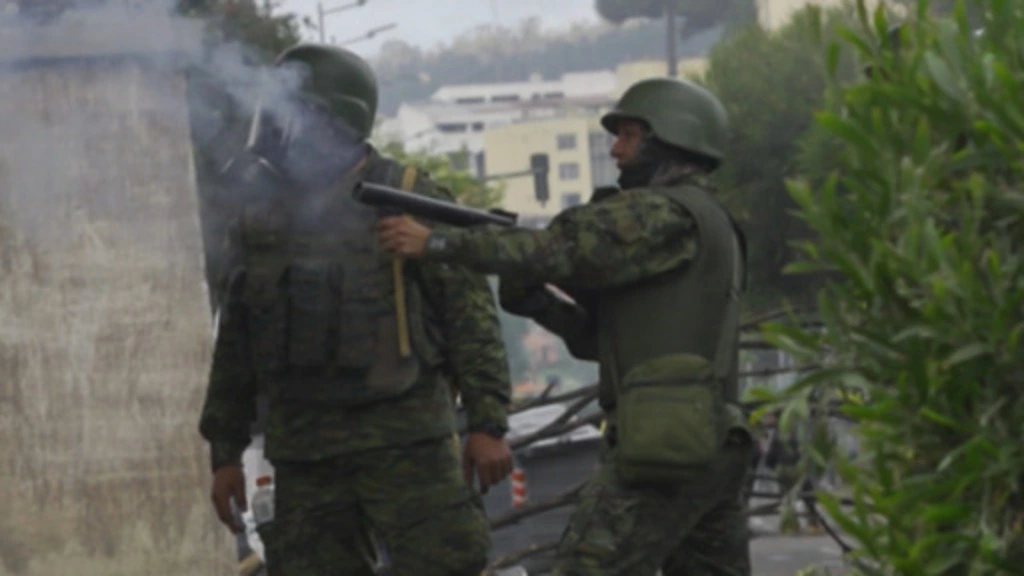Ecuador experiences its worst violence since 1990, culminating in the deaths of ten individuals, including two police officers.
This surge in violence stemmed from growing organized crime and drug trafficking.
In Nobol, Guayas province, criminals brutally murdered two police officers, sparking a nationwide manhunt.
Guayaquil, notorious for high crime rates, witnessed riots and chaos. Criminals targeted a police unit, burned vehicles, and attacked hospitals and a TV channel.
The situation peaked at TC Television when armed men took the staff hostage during a live broadcast.
The police intervened, rescuing the hostages and arresting 13 suspects for terrorism.
Violence spread to other cities, with bombings, vehicle arson, and police kidnappings, causing widespread fear.
In response, on January 9, President Daniel Noboa declared a state of emergency and an internal armed conflict.

He targeted 22 criminal groups, labeling them as terrorists.
This decision came after prison riots and the dramatic escape of José Adolfo Macías Villamar, known as ‘Fito’, from Guayaquil’s Litoral Penitentiary.
Fito’s escape intensified the already high-stakes situation.
The crisis continued with Quito’s Mayor, Pábel Muñoz, urgently requesting military support to handle the escalating security situation.
The military was deployed to protect vital services, including the Metro, and public buildings in Quito were evacuated for safety.
Background – Ecuador Experiences Worst Violence Since 1990
The crisis’s roots lie in various factors. Ecuador’s strategic location has made it a hub for drug trafficking, leading to violent cartels and criminal organizations.
Economic struggles and social inequalities have driven many, particularly youth, to crime.
The law enforcement and judicial systems face corruption and resource limitations, affecting crime prevention efforts.
Regional drug trade dynamics in Latin America, prison gang violence, political instability, and global drug policies further complicate the situation.
Addressing this multifaceted crisis requires a comprehensive approach.
This requires enhancing law enforcement, judicial reform, economic growth, and global collaboration to combat drug trafficking and restore Ecuador’s peace and order.

